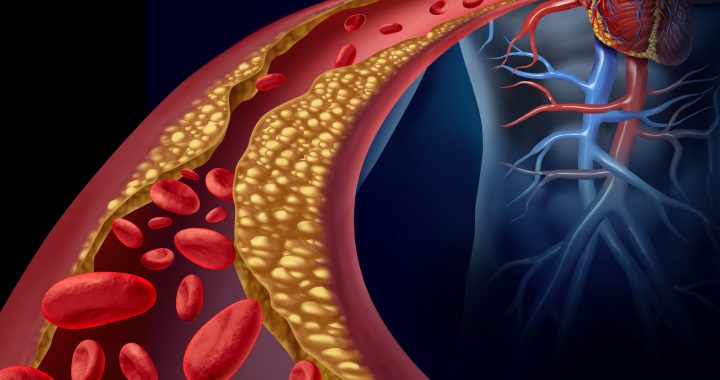CHOLESTEROL, STATIN DRUGS, AND EFAS
Hypercholesterolemia is today’s new disease of choice. The concern of high cholesterol has risen over the last few years as health professionals discovered how to measure cholesterol levels in the blood. High cholesterol exhibits no outward signs except the tell tale symptom of feeling good. The medical literature of 25 to 30 years ago identified a sufferer of hypercholesterolemia as: any middle-aged man whose cholesterol is over 240 and with other risk factors, such as smoking or overweight. After the Cholesterol Consensus Conference of 1984 the parameter was dropped to anyone with a level over 200. Recently the numbers were moved down again to 180. Also, if you have had a heart attack, you will be put on a cholesterol lowering medicine even if your cholesterol is already very low. The thinking is that since you had a heart attack you must have a cholesterol problem. When people ask me about cholesterol numbers, I tend to side with the health professionals of 25 to 30 years ago: don’t panic unless you are over 240. However, your diet must contain a proper balance of Essential Fatty Acids.
Contrary to the popular belief that Cholesterol is the root of all evils, it serves many beneficial functions. Every cell membrane in our body contains cholesterol, making cells waterproof. Inadequate cholesterol levels cause cell membranes to become leaky or porous triggering an emergency mode. The body then releases corticoid hormones that steal cholesterol from one place and deposit it to areas where it is lacking. Some believe this causes Alzheimer’s disease since the brain is the cholesterol cash cow of the body.
Cholesterol is the body’s repair substance. It is also the precursor to Vitamin D, necessary for mineral metabolism. Bile salts required for digestion of fat are made of cholesterol. Cholesterol is a powerful antioxidant protecting us against cancer and aging. It plays a key roll in our memory function and the uptake of hormones in the brain including serotonin. Cholesterol is the precursor to all hormones produced in the adrenal cortex and without it our energy, ability to heal, libido etc will suffer.
Statin Drugs lower the production of cholesterol by inhibiting mevalonate, an enzyme in a long chain of chemical processes that has three end products: Cholesterol, Ubiquinone (Co-Enzyme Q10) and Dolichols. Thus, when you take a Statin Drug you not only hinder the production of cholesterol but Co-Q10 and Dolichols as well. Co-Q10 is a vital heart nutrient. The heart requires high levels of Co-Q10; it plays a role in maintaining cell membrane integrity and muscle integrity. It is vital in the formation of elastin and collagen. Side effects of low Co-Q10 include muscle wasting leading to weakness and severe back pain, heart failure, neuropathy, and inflammation of the tendons and ligaments. Dolichols work to direct various proteins manufactured in response to DNA ensuring that cells respond correctly to genetically programmed instruction. Thus, Statin Drugs can lead to unpredictable chaos on the cellular level.
Statin Drugs have many side effects including muscle pain and weakness, neuropathy, dizziness, cognitive impairment, pancreatic rot, depression, and cancer (In every study with rodents to date, statins have caused cancer.). It is ironic that a drug given to prevent heart disease hinders the heart’s main nutrient – Co-Q10.
Rather than turning to Statin Drugs, naturopaths choose Essential Fatty Acids. These polyunsaturated oils are the good fats. EFAs produce beneficial hormone-like compounds called eicosanoids that affect the function of virtually every system in the body. When the body receives a proper balance of eicosanoids from EFAs, it can maintain proper blood pressure and cholesterol levels. EFAs relieve many women’s health issues, prevent cholesterol from becoming sticky in you blood, and increase your HDL.
The richest and most beneficial EFAs come from cold water fish such as salmon, sardines, mackerel, and herring. These oils contain EPA and DHA. EPA (Eicosapentaenoic acid) is a long-chain Omega-3 polyunsaturated essential fatty acid. EPA supports cardiovascular health and reduces inflammation. It reduces the risk of cardiac arrest and ischemic stroke with virtually no side effects. In addition studies have shown EPA to improve symptoms in both schizophrenia and depression. DHA (Docosahexaenoic acid) also found in fish, protects us from the harmful effects of stress, and increases membrane fluidity, supports learning functions and cognitive development.
GLA found in borage oil and evening primrose oil also has anti-inflammatory effects and promotes healthy skin, hair and hormones. I encourage everyone to include a high quality EFA supplement to their preventive health program. It should contain balanced levels of EPA, DHA, and GLA.

